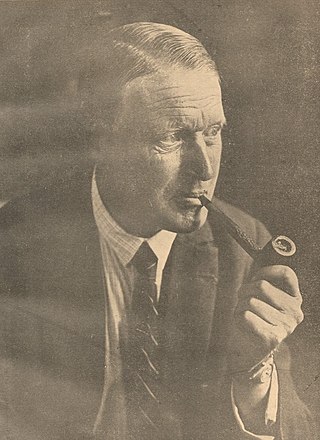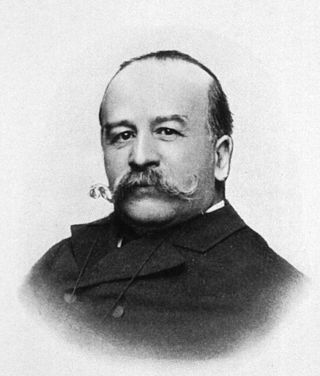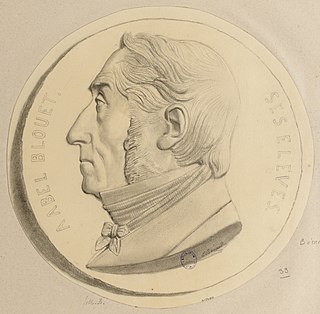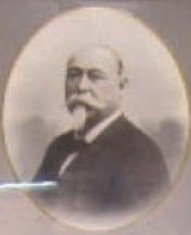Related Research Articles

Parole is a form of early release of a prison inmate where the prisoner agrees to abide by behavioral conditions, including checking-in with their designated parole officers, or else they may be rearrested and returned to prison.

Rodolphe Archibald Reiss was a German–Swiss criminology-pioneer, forensic scientist, professor and writer.

Philippe Delorme is a French historian and journalist, whose articles have appeared in Point de Vue, Point de Vue Histoire, and Valeurs actuelles, among others.

Nicolas Bergasse was a French lawyer, philosopher, and politician, whose activity was mainly carried out during the beginning of the French Revolution during its early Monarchiens phase.

Henri-François-Alphonse Esquiros was a French writer born in Paris. He usually wrote with the name Alphonse Esquiros.

Alain Bauer is a French criminologist who has been a professor of criminology at the Conservatoire national des arts et métiers since 2009. He is also a senior research fellow at the John Jay College of Criminal Justice and the China University of Political Science and Law (Beijing). There were many protests in the scientific community in France against the appointment because he had not received a PhD.

André-Michel Guerry was a French lawyer and amateur statistician. Together with Adolphe Quetelet he may be regarded as the founder of moral statistics which led to the development of criminology, sociology and ultimately, modern social science.
Gaston Jèze was a French academic, humanitarian and human rights activist. He was a professor of public law and the resident of the International Law Institute.

Alexandre Lacassagne was a French physician and criminologist who was a native of Cahors. He was the founder of the Lacassagne school of criminology, based in Lyon and influential from 1885 to 1914, and the main rival to Lombroso's Italian school.

Claude-Adrien Nonnotte was a French Jesuit controversialist, best known for his writings against Voltaire.

Guillaume-Abel Blouet was a French architect who specialised in prison design.
Charles Joseph Barthélémy Giraud was a French lawyer and politician. He was twice Minister of Education during the French Second Republic.
Antoine Richard "du Cantal" was a French medical doctor, veterinarian, agronomist and politician.

Gustave Honoré Cotteau was a French judge, naturalist and paleontologist.

Jules Godin was a French lawyer and politician of the French Third Republic. He was Deputy of French India from 1876 to 1881 and Senator of French India from 1891 to 1909. He was briefly Minister of Public Works in 1898.

Michelle Bubenicek is a French medievalist historian. She was appointed director of the École Nationale des Chartes on 1 September 2016.

Jules Léon-Jean Combarieu was a French musicologist and music critic.

Alexandre Mauguin was a French printer who was deputy and then senator of the department of Algiers in French Algeria between 1881 and 1894.
Guillaume-François Le Trosne, born 13 October 1728 in Orléans and died 26 May 1780 in Paris, was a French jurist and economist. He is one of the main figures of physiocracy, a school of thought founded by François Quesnay and the Marquis de Mirabeau in July 1757.

Amable Charles Franquet, comte de Franqueville was a French conseiller d'État, lawyer, and scholar, known for his work on British institutions.
References
- ↑ Normandeau, André (1969). "Pioneers in Criminology: Arnould Bonneville de Marsangy (1802-1894)". The Journal of Criminal Law, Criminology, and Police Science . 60 (1). Northwestern University School of Law: 28–32. doi:10.2307/1141732. JSTOR 1141732.
Bonneville delineated a parole system, which he called "preparatory liberation" or "conditional release", as early as 1846 when he delivered a discourse on the topic at the opening session of the Civil Tribunal at Reims.
- ↑ Bonneville de Marsangy, Arnould (January 29, 1868). "Twenty-Third Annual Report of the Executive Committee of the Prison Association of New York for 1867". C. Van Benthuysen & Sons. pp. 165–178.